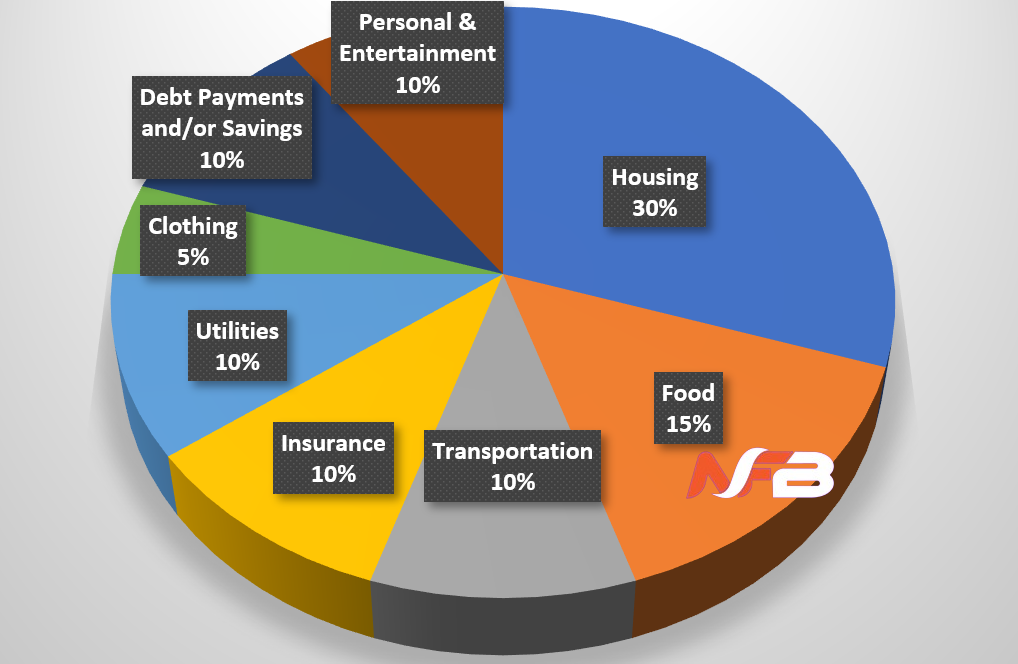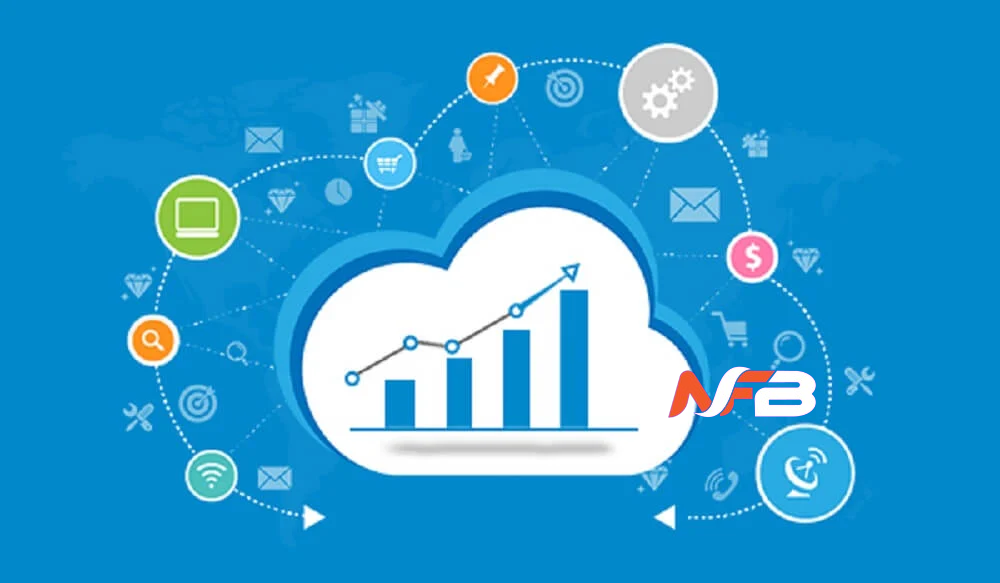With the plethora of website builders available today, selecting the perfect one for your business can feel overwhelming. This guide aims to simplify the process, providing you with a structured approach to find a website builder that aligns with your business goals, budget, and future growth plans. We’ll explore key considerations such as defining your website’s purpose, comparing features, understanding costs, assessing scalability, and making an informed final decision to ensure your online presence is both effective and efficient.
Key Takeaways
- Clarify your business goals and website objectives to find a website builder that supports your strategy and desired features.
- Examine the drag-and-drop functionality, e-commerce capabilities, and marketing tools to ensure they meet your specific needs.
- Consider your budget and resources carefully, including the total cost of ownership and ongoing maintenance requirements.
- Choose a website builder that offers scalability and flexibility to accommodate future business expansion and content updates.
- Review top website builder options, avoid common selection pitfalls, and confirm compatibility with your business requirements.
Read Also:- ERP Software Development
Understanding Your Website Objectives
Defining Your Business Goals
Before diving into the technicalities of building a website, it’s essential to define your business objectives. These goals will serve as the compass for your website’s design, functionality, and content. Whether you aim to drive sales, share information, or increase foot traffic, each objective will require different features from your website builder.
- Drive sales through an online store
- Share information via a news or blog platform
- Increase foot traffic to a physical location
- Showcase a portfolio of work
- Provide customer service with FAQs and contact forms
Establishing clear objectives not only guides your website’s development but also helps in measuring its success post-launch. It’s crucial to prioritize your main goal while keeping in mind that secondary objectives can also be integrated into your website strategy.
Remember, your website is the virtual face of your business, and it should reflect your brand’s identity and values. A well-defined goal will influence every aspect of your website, from the user experience to the marketing approach.
Identifying Key Website Features
When selecting the best website builder, it’s crucial to identify the key features that align with your business needs. A well-chosen set of features can significantly enhance the visitor experience and contribute to achieving your business objectives. Consider the following essential elements:
- Contact forms for gathering inquiries and leads.
- eCommerce capabilities for online selling, including product pages and secure checkout.
- Search functionality to help users navigate large volumes of content or products.
- Mobile optimization to ensure a seamless experience across various devices.
- Drag-and-drop editing for easy website customization.
- SEO tools to improve your site’s visibility in search engines.
- Data analytics for tracking visitor behavior and website performance.
Each feature should serve a clear purpose, whether it’s to inform, engage, convert, or support your visitors.
Remember that the right combination of features will depend on your specific business model and the role your website plays in your overall strategy. As you plan your website, prioritize features that offer the most value to your business and your customers.
Assessing the Role of Your Website in Your Business Strategy
When considering the role of your website in your business strategy, it’s essential to recognize that your online presence is more than just a digital brochure; it’s a pivotal platform for engaging with customers, building brand identity, and driving sales. Your website should be a reflection of your business’s unique value proposition and objectives.
- Engagement: How will the website facilitate interaction with your audience?
- Conversion: What features are necessary to convert visitors into customers?
- Information: What kind of content will best inform and educate your audience?
- Support: How will the website provide after-sales service or customer support?
The alignment of your website’s functionality with your business goals is crucial for ensuring that it effectively contributes to your overall strategy. A well-assessed website role can lead to a cohesive user experience that resonates with your brand and meets your business objectives.
Evaluating Website Builder Features

Comparing Drag-and-Drop Functionality
When evaluating a top-rated website builder, drag-and-drop functionality is a critical feature that can greatly simplify the website creation process. This feature allows users to construct their website by moving elements around the page without the need for coding. It’s essential for those with minimal technical skills who still want to craft a professional-looking website.
- Ease of Use: Drag-and-drop builders offer varying levels of simplicity. Some might require basic coding, while others are purely intuitive.
- Customization: Look for builders that provide customizable templates and the ability to import demo data, making setup a breeze.
- Essential Features: Ensure the builder includes responsive design settings and a robust page editor.
Choosing the right drag-and-drop functionality can be the difference between a frustrating or a seamless website design experience. It’s not just about having the feature, but how well it integrates with your overall design vision and technical proficiency.
Exploring E-commerce Capabilities
When selecting a website builder for your business, e-commerce capabilities are a critical aspect to consider. The right platform should not only facilitate the creation of an online store but also provide a suite of tools to manage and grow your digital sales effectively.
- Product Management: How easy is it to add and manage products?
- Payment Options: Does the builder support multiple payment gateways?
- Security: Are there robust security measures in place to protect transactions?
- Customer Experience: Can you create a seamless shopping experience with features like search filters and customer reviews?
The goal is to find a website builder that aligns with your e-commerce needs, offering both the flexibility to start small and the capacity to scale as your business grows.
It’s important to note that while every builder may offer an e-commerce option, not all are equipped to handle the demands of an online store. Dedicated e-commerce builders like Shopify or BigCommerce are designed with online sales in mind, offering extensive e-commerce features. In contrast, platforms like WordPress might require additional plugins and customization to meet e-commerce requirements.
Investigating Marketing and SEO Tools
When selecting a website builder, it’s crucial to consider the marketing and SEO tools available. Effective SEO features can significantly enhance your site’s visibility and organic reach. A builder with integrated marketing tools can streamline your campaigns and improve user engagement.
- SEO optimization capabilities
- Social media integration
- Email marketing functionalities
- Analytics and reporting tools
Ensuring your website builder has robust marketing and SEO tools is not just about immediate needs but also about future-proofing your online presence.
While some platforms offer basic SEO settings, others provide advanced options like keyword support, meta tags, and site speed optimization. It’s important to assess whether these tools are user-friendly or if they require technical expertise. Additionally, consider the level of customer support provided for these features, as this can be a critical factor in effectively utilizing them.
Considering Your Budget and Resources

Analyzing Pricing Structures
When examining the pricing structures of various website builders, it’s crucial to understand that the cost goes beyond the monthly or annual subscription fees. Most website builders offer multiple pricing tiers, each with a distinct set of features and limitations. It’s important to compare these tiers to find the one that aligns with your business needs and budget.
- Entry-level plans may be cost-effective but often come with restrictions such as limited storage, bandwidth, or no e-commerce capabilities.
- Mid-range plans usually offer a balance between cost and features, suitable for growing businesses.
- Premium plans cater to businesses with high demands for features, support, and scalability.
Remember, the true cost of a website builder includes potential transaction fees and the price of additional add-ons. These can significantly impact your budget if not accounted for.
Transaction fees are a critical aspect to consider. For instance, a 3% processing fee on $10,000 of monthly sales amounts to $300. If your website builder charges an additional fee, this can quickly escalate. Always read the fine print regarding transaction fees and calculate the total cost based on your sales volume. Comparing this against the offerings of competitors can reveal the most cost-effective solution for your business.
Understanding the Total Cost of Ownership
When considering the total cost of ownership for your website, it’s crucial to look beyond the surface. Recurring costs such as subscription fees can vary significantly as you scale from basic to more advanced plans. Additionally, hidden expenses like transaction fees can accumulate, especially as your sales volume increases.
- Transaction fees: These can quickly add up, particularly if your chosen platform takes a percentage of each sale. For example, a 3% fee on $10,000 of monthly sales equates to $300 out of your pocket.
- Add-ons and integrations: Depending on your business needs, you may require additional features that come at a cost. Calculate the price of these extras and compare with alternatives.
Overall, you want to treat your web creation expenses as an investment. By setting a sensible budget, you’re ensuring your web project not only stays manageable but also primed to return real value.
Remember to read the fine print before selecting a website builder. Fees for payment processing and other services can vary widely, and what seems like a small percentage can have a large impact on your bottom line. Opportunities to mix and match services can also influence the total cost, allowing for a custom architecture that suits your business requirements.
Allocating Resources for Website Maintenance
Allocating resources for website maintenance is a critical step in the long-term success of your online presence. Regular updates and maintenance are essential to ensure your website remains secure, functional, and relevant to your audience. Consider the following aspects when budgeting for maintenance:
- Ongoing costs: These include domain renewal, hosting fees, and security certificate updates.
- Technical support: Budget for potential technical issues that may require professional assistance.
- Content updates: Allocate funds for refreshing or adding new content to keep your site engaging.
- Software updates: Set aside resources for updating website software and plugins to protect against security vulnerabilities.
By proactively planning for these expenses, you can avoid unexpected costs and ensure your website continues to support your business effectively.
Remember, neglecting website maintenance can lead to increased costs down the line, such as emergency repairs or lost revenue due to downtime. It’s not just about keeping your website running; it’s about keeping it competitive and aligned with your business goals.
Analyzing Scalability and Growth Potential

Planning for Business Expansion
When planning for business expansion, it’s crucial to select a website builder that can grow with your company. Choose a platform that supports scalability, ensuring that as your business evolves, your website can seamlessly accommodate increased traffic, additional product lines, and more complex customer interactions.
- Look for website builders that offer tiered plans, allowing you to upgrade as needed.
- Ensure the platform can integrate with advanced tools and services as your business requirements expand.
- Verify that the website builder doesn’t impose restrictive limits on page counts, user accounts, or transaction volumes.
Scalability is not just about handling growth; it’s about making the growth process as smooth and uninterrupted as possible. A website builder that offers a clear upgrade path can make the difference between a quick expansion and a logistical nightmare.
Remember, a platform that’s perfect for a small startup might not be suitable for a mid-sized enterprise. It’s essential to anticipate future needs and choose a website builder that won’t hinder your growth but instead will facilitate it.
Choosing a Flexible Platform
Selecting a website builder that offers flexibility can be crucial for the evolving needs of your business. A flexible platform allows for growth and changes without the need to overhaul your entire website. Consider the level of customization you require, such as the ability to add custom code or support for multiple languages. Additionally, think about whether you prefer a proprietary or open-source content management system (CMS), as this can affect your site’s maintenance and security responsibilities.
When evaluating flexibility, it’s important to assess how tied you are to the builder’s hosting service. Some services, like Weebly or Duda, offer the option to download your website files, providing the freedom to switch hosts if needed.
Here are some key factors to consider when choosing a flexible platform:
- The ability to integrate with various technologies and services.
- Options for customizing the user experience to match your brand.
- Scalability to accommodate business growth and increased traffic.
- Ease of content management and updates to keep your site current.
Remember, a platform that matches your business’s growth trajectory can save time and resources in the long run.
Ensuring Easy Content Management and Updates
The ability to manage content efficiently and perform updates with ease is a cornerstone of a good website builder. Choosing a platform with a robust content management system (CMS) is crucial for maintaining a dynamic and up-to-date website. A user-friendly CMS can significantly reduce the time and technical expertise required to make changes, ensuring that your website evolves alongside your business.
When evaluating website builders, consider how the CMS handles the creation of new posts, updates to existing content, and overall site management. The right CMS will empower you to maintain your website’s relevance without the need for constant professional assistance.
Here are some key considerations for content management and updates:
- The CMS should offer an intuitive interface for non-technical users.
- It must support a range of content types, from text and images to videos and downloadable files.
- Look for features that facilitate social media integration and SEO optimization.
- Ensure the platform provides adequate support for security, backups, and technical updates.
Remember, a flexible and user-friendly CMS is not just about ease of use; it’s about ensuring that your website can grow and adapt as your business does.
Making the Final Decision

Reviewing Top Website Builder Options
When narrowing down your top website builder choices, it’s essential to compare them side-by-side to see how they stack up against each other. Consider the ease of use, range of design options, and the level of customer support each provides. Here’s a quick comparison to help you get started:
| Website Builder | Ease of Use | Design Flexibility | E-commerce | Customer Support |
| Builder A | Excellent | High | Advanced | 24/7 Chat & Phone |
| Builder B | Good | Moderate | Basic | Email & Help Docs |
| Builder C | Fair | Limited | None | Business Hours Only |
Remember, the best website builder for your business should align with your company’s growth trajectory and long-term goals. It should offer the right balance between functionality and affordability.
After you’ve compared the technical aspects, take the time to read user reviews and testimonials. These can provide valuable insights into the reliability and user experience of each platform. Finally, consider any unique features that may be particularly beneficial for your business, such as membership systems, appointment booking, or industry-specific tools.
Avoiding Common Pitfalls in Selection
When selecting a website builder, it’s crucial to sidestep common mistakes that could hinder your website’s success. Avoid getting swayed by flashy features that don’t align with your business needs. Instead, focus on the essentials that will support your business goals.
- Do not overlook usability: A complex builder may offer extensive features, but if it’s not user-friendly, it can slow down your progress and increase the need for technical support.
- Resist the temptation to cut corners: Skipping steps like wireframing can lead to costly redesigns. Wireframing allows you to identify and address layout and usability issues early on.
- Be wary of hidden costs: Some builders may have attractive upfront pricing but come with high long-term costs due to add-ons, maintenance, or scalability limitations.
Ensure that the website builder you choose can grow with your business and won’t lock you into a restrictive platform.
By asking the right questions and carefully considering your design and structure needs, you can select a website builder that truly fits your business. Remember to consider your audience preferences and how the website reflects your brand’s identity and values.
Confirming Compatibility with Business Needs
Ensuring that your chosen website builder aligns with your business needs is the final, yet most critical step. Consider the long-term implications of your choice; it’s not just about the immediate ease of use or attractive templates. Reflect on the following questions to gauge compatibility:
- Do you need a website that’s ready within a short timeframe, or can you afford a longer development process?
- Is there a requirement for specific technologies or custom architecture to support your business goals?
- How important is having the flexibility to change hosting providers or integrate different services?
The right website builder should not only fit your current requirements but also adapt to future changes and growth. It’s about finding a balance between immediate needs and future scalability.
Remember to assess the availability of skilled professionals who can work with your chosen platform. This ensures that your website can be effectively tailored and maintained. Lastly, consistency across your website reinforces your brand and instills trust in your visitors. Make sure the builder you select can help you achieve a cohesive and professional online presence.
Read Also:- Financing Solutions
Conclusion
Choosing the right website builder for your business is a crucial step in establishing a strong online presence. With the myriad of options available, it’s essential to identify your needs, assess your budget, and understand the features that each platform offers. Remember that the best website builder for you is one that aligns with your business goals, offers the necessary tools for growth, and fits within your financial plan. Take the time to compare different website builders, consider your long-term objectives, and don’t hesitate to utilize guides and resources to make an informed decision. Ultimately, the right choice will help you create a professional and functional website that serves as a valuable asset for your business.
Frequently Asked Questions
What are the key factors to consider when choosing a website builder?
When selecting a website builder, consider your business goals, key website features, budget, scalability, and growth potential. Assess the drag-and-drop functionality, e-commerce capabilities, marketing and SEO tools, pricing structures, and the flexibility of the platform.
How do I define my business goals for my website?
Define your business goals by considering what you want to achieve with your website, such as showcasing solutions, selling products or services, building a personal brand, or promoting affiliates. Align these goals with your overall business strategy.
What should I look for in a website builder’s e-commerce capabilities?
Look for a website builder with robust e-commerce features like product management, shopping cart integration, payment processing options, and security measures to ensure a smooth online shopping experience for your customers.
How important are marketing and SEO tools in a website builder?
Marketing and SEO tools are crucial for attracting and retaining visitors. Look for features such as social media integration, email marketing, analytics, and SEO-friendly options to improve your website’s visibility and engagement.
What does the total cost of ownership for a website include?
The total cost of ownership for a website includes the initial setup fees, monthly or annual subscription costs, additional feature expenses, and ongoing maintenance costs. Assess these to ensure they align with your budget and resources.
How can I ensure that the website builder I choose is compatible with my business needs?
To ensure compatibility, review the website builder’s features, scalability, and flexibility in relation to your business needs. Consider starting with a trial version to test its suitability before making a long-term commitment.













Leave a Reply